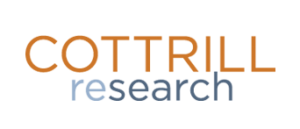There are many skills that a business professional needs in order to become successful and an asset to his or her organization. Arguably, verbal and written communication, technical, interpersonal, and critical thinking skills are some of the most important. There is another skill, I suggest, that is woefully underlooked: basic research. Today, information, in abundance, is readily available via the Internet and through commercial databases and services. The need to find quality information, efficiently and effectively is more crucial than ever. Procurement professionals in all organizations, regardless how large or small, perform research at some level. The importance of supplier diligence, risk monitoring and understanding the markets in which suppliers operate has greatly increased over the past couple of years and will continue to increase as supply chains become more global.
Research does not have to be complex. There are certain basic skills that can be used in any research activity, whether it is via the Internet, open web, or using for-fee databases/services that will greatly enhance the quality and relevance of research results.
Here are some tips to consider to help sharpen your research skills.
#1 – Terminology. Using the wrong terminology (keyword) when searching is probably one of the leading factors in producing poor or irrelevant results. Brainstorm and identify all the various keywords and terms that can be used before starting to search.
- Look for a “related searches” or “related terms” feature in the database. This tool will help identify various alternative terms that can be used. Even Google has this feature. In Google, under your search results look for Searches related to _________. For example, related searches to strategic sourcing best practices are: strategic sourcing process, best in class strategic sourcing, and procurement best practices benchmarks.
- In almost all commercial databases, subject headings are assigned to articles. If you get a good “hit,” see what subject headings have been assigned to that article.
- Use glossaries. Most professional associations provide some type of glossary of terms. CIPS, CSCMP, and ISM all provide glossaries. The Sourcing Innovation blog has an excellent, detailed glossary.
- Use online dictionaries and thesauri for single word terms. The graphical versions (like Visuwords) are interesting.
#2 – Basic Search Commands.
Even as search tools move towards natural language command, Boolean is still around and still very effective.
- and – use this to narrow results. Typing in supplier and manufacturer will retrieve articles that have both of those terms. (Google automatically uses the “and” command when there is more than one keyword.)
- or – use this to expand results. Typing in supplier or vendor will retrieve articles that have at least one of the terms. Also use this if there might be different ways to enter a term: IBM or “International Business Machines”
Other:
- asterisk (*) – use the asterisk to find all forms of a search term. For example the search term hack* will find hacks, hacker, hacked, hacking, etc.. (In Google it is a placeholder.)
- quotation marks – use quotation marks to search for exact phrase. For example the database will recognize “market share” as words being together instead of apart.
3 # Narrow and Refine.
- All databases have various ways that allow you to narrow and refine your results. Google also provides these features as well.
- The advanced search will almost always allow you to search for words in the title only.
- You can restrict by date, even putting in a customized date range. (In Google, this is the “Any Time” option.)
- Other options allow for searching by publication or author.
#4 – Know How the Results Are Sorted.
- The first thing to do when viewing your results after entering a search term is to determine how they are being sorted. Most of the time the default is set to “relevance,” meaning the results with the most occurrences of your search term appear first. And this is good. But not too good if you are researching something that needs to be current, like supplier financials. Then you will want to sort the results by date. If the default is by date, and your first hits are way off, you might think you have entered a bad search term.
#5 – Authority. The credibility of any research rests with the credibility of the author or publisher of the information.
- There should be proof that the information is coming from an authoritative source. For websites, there should be an easily identifiable person or organization who takes responsibility for the information being presented. You should be able to easily contact the author or organization by email, phone number or mailing address.
- Look for background information about the author, such as other published offerings, education and affiliations.
- If you are unsure about using research from an unknown provider, such as a market research report, look at the methodology used in gathering the information. Also search to see if any reviews have been written about the provider.
#6. Utilize expertise.
- Use customer support to the fullest. The support team can help you set up the best searches to get the best results. They want you to be successful using their service or product.
- Take any training that is available using the resource.
#7 – Research is a process. Remember research means to search, and then re-search, and re-search again, until you find the correct information.
